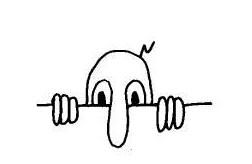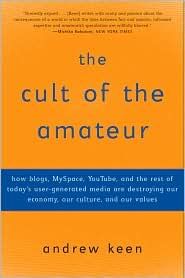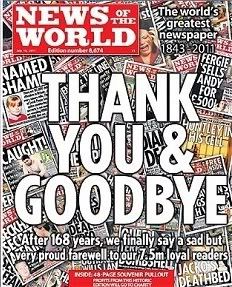
One day this frog was bored, so he decided to call the psychic hotline.The psychic asked the frog, "what do you want to know." "Tell me something about my love life," said the frog. "In the very near future you are going to meet a very beautiful young woman," said the psychic. "Cool, where? at a disco or a party?" said the frog."No," the psychic replied,"next month in her biology class!"
"Analyzing humor is like dissecting a frog. Few people are interested and the frog dies of it." - E.B. White
"Almost all the jokes that I have found touch on a certain social boundary, susceptibility or 'threshold of embarrassment.' The most popular joke categories deal with sensitive questions like sex, gender relationships, foreigners, aggression, religion, money, sicknesses, death, disasters and scandals. Much of the pleasure of humor lies in the short-lived, playful, light-hearted overstepping of a social boundary."
"...the most widespread jokes are without a doubt jokes about sex and gender relationships..."
"...I can easily distinguish elements crucial to the understanding of all categories of jokes: the distinction between jokes in which a boundary is transgressed and jokes that themselves transgress a social boundary." - from "Good humor, bad taste: a sociology of the joke" by Giselinde Kuipers
"Joking entails a dynamic process where the characteristics of the joke teller and the audience interact with the embedded meaning of the joke. It is the interactions among these factors that determine whether efforts to be funny are acceptable or not."
"Freud argues for the cathartic effect of joking, especially in areas of unconscious turmoil about human sexuality and aggression. Humour is seen as a safe outlet that prevents the teller from expressing his hostilities in more destructive ways." - from "No Laughing Matter: Boundaries of Gender-Based Humour in the Classroom" by Aysan Sev'er and Sheldon Ungar
"We know that when we verbally depreciate the humanity of people it is much easier to treat them in inhumane ways." - from "An Anatomy of Humor" by Arthur Asa Berger
Boundary-pushing jokes and sacred cows.
Do sacred cows make the best hamburger?
Is it so wrong it's right?
Do you sometimes laugh against your better judgment?
How do you maintain the balance between funny and offensive?
How far is too far? When and how does a joke become a boundary transgression?
Bad taste or much needed levity?
Where's the line, how is it determined, how do you know it, who sets it, why and who polices it?
Are older people more easily offended than younger people? Are women more easily offended than men? Are Americans more easily offended than Europeans? And if so, why? And does it matter?
Do jokes based on tropes of discrimination and bigotry like race, gender and sexual orientation let the hot air out of the balloon and tweak the destructive accepted conventional wisdom of the time and place or only add to the destructiveness and propagate hate and ignorance? Do ethnic jokes, for example, "reinforce stereotypes and hostile feelings" or do they help people "deal with hostility verbally instead of physically"?
Is "politically correct" a worthy and achievable ideal? Useless or overused?
Are some of our greatest modern social commentators and philosophers comedians?
Do people just need to lighten the fuck up?
Links:
http://www.froggyville.com/jokes.htm
http://www.bookbrowse.com/quotes/detail/index.cfm?quote_number=228
http://books.google.com/books?id=uk_WHTCTN9YC&pg=PA121&lpg=PA121&dq=boundaries+of+humor+and+jokes&source=bl&ots=uDr0R__FjJ&sig=Ifxovpm2HrShoakZxnXI7i3mLTA&h
http://www.jstor.org/pss/2959937
http://books.google.co.in/books?id=aZkRJJnc6BUC&pg=PA57&dq=Davies,+Christie.+Ethnic+Humor&source=gbs_toc_r&cad=0_0#v=onepage&q=Davies%2C%20Christie.%20Ethnic%20Humor&f=false



